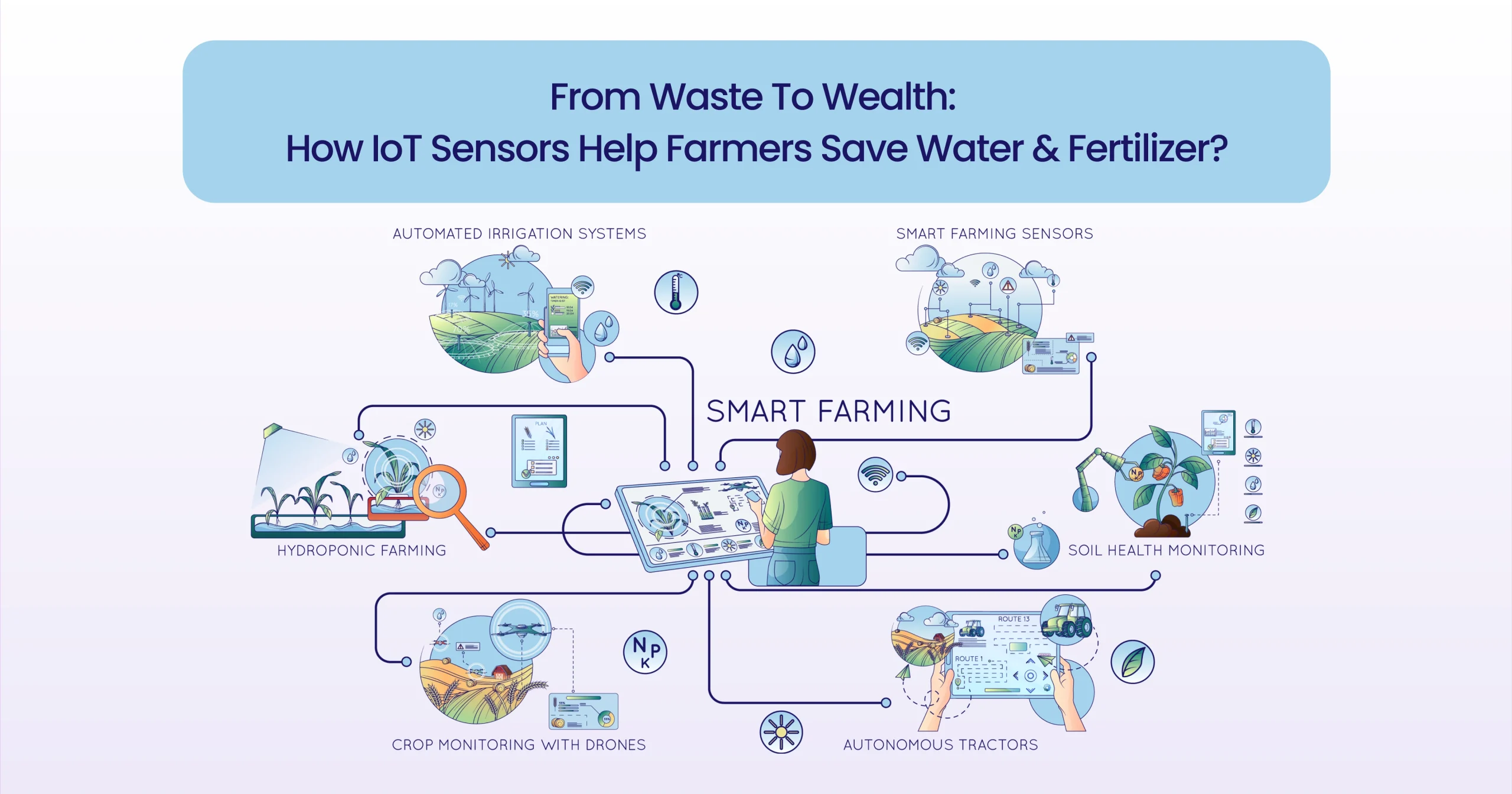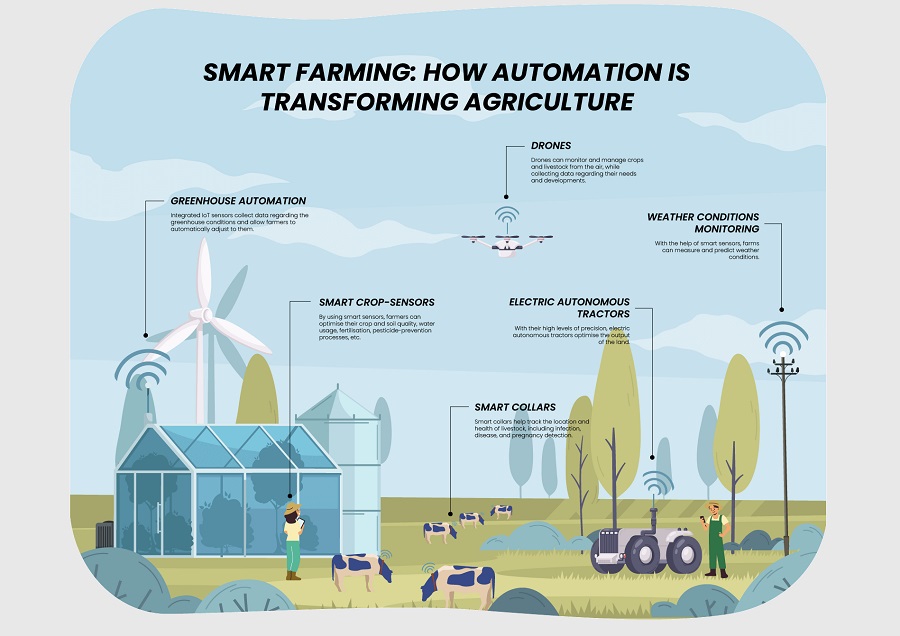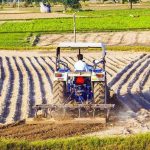Imagine driving a tractor that knows exactly what your crops need. It’s not science fiction; it’s the reality of smart sensors in modern agriculture.
You might be wondering how these tiny devices can revolutionize your farming practices. By providing real-time data and insights, smart sensors help you make informed decisions, optimize resource use, and increase yields. Picture the ease of managing your farm more efficiently, saving time and money, while boosting productivity.
Are you ready to discover how these intelligent tools can transform your agricultural operations and give you a competitive edge? Keep reading to uncover the ways smart sensors can enhance your farming experience, making it smarter and more sustainable.

Enhancing Precision Farming
Precision farming is transforming agriculture. Smart sensors in tractors play a key role. They help farmers achieve greater accuracy. This leads to better crop yields and reduced waste.
Understanding Smart Sensors
Smart sensors collect data from the environment. They measure soil moisture, temperature, and nutrient levels. This data helps farmers make informed decisions.
Improving Crop Management
Smart sensors offer real-time insights. Farmers can adjust irrigation based on soil moisture data. This ensures crops receive the right amount of water.
Optimizing Resource Usage
With sensor data, farmers apply fertilizers efficiently. They target specific areas needing nutrients. This reduces waste and saves money.
Enhancing Equipment Efficiency
Sensors monitor tractor performance. They detect issues early, preventing breakdowns. This keeps tractors running smoothly during planting and harvesting.
Reducing Environmental Impact
Smart sensors help minimize chemical use. Farmers apply pesticides only where necessary. This protects the environment and promotes sustainability.
Boosting Yield And Quality
Accurate data leads to healthier crops. Better crop management increases yield and quality. Farmers can meet market demands more effectively.

Improving Crop Monitoring
Smart sensors in tractors enhance crop monitoring by providing real-time data on soil health and moisture. They help farmers make informed decisions, improving yield and reducing waste. With these sensors, tracking crop conditions becomes more precise and efficient, benefiting both productivity and sustainability.
Smart sensors in tractors have revolutionized the way farmers monitor their crops, offering a precise and efficient approach to agricultural management. These technological marvels provide farmers with real-time data, allowing them to make informed decisions that directly impact crop yield and quality. Improving crop monitoring is just one of the many ways smart sensors are enhancing modern agriculture, making it more sustainable and productive.Real-time Data Collection
Smart sensors continuously collect data on soil moisture, temperature, and nutrient levels. This constant stream of information helps you understand the specific needs of each crop. Imagine knowing exactly when your crops need water or fertilizer, reducing waste and improving growth.Early Detection Of Crop Issues
With smart sensors, you can identify problems like pest infestations or disease outbreaks early. This early detection allows for timely interventions, preventing significant damage. Have you ever lost a portion of your crop to a pest before even realizing it was there? Smart sensors can help avoid such losses.Precision Farming Techniques
Smart sensors enable precision farming by delivering data that helps tailor farming practices to the specific conditions of your fields. You can apply inputs like water and nutrients precisely where and when they are needed. This approach not only saves resources but also boosts crop yield.Enhanced Yield Prediction
Accurate data from smart sensors allows for better yield predictions. Knowing what to expect at harvest time helps in planning and marketing your produce. This foresight can significantly increase profitability and reduce waste.Environmental Sustainability
Using smart sensors in tractors can lead to more sustainable farming practices. By optimizing resource use, you contribute to environmental conservation. Have you considered how reducing excess fertilizer can protect nearby waterways? Smart sensors play a crucial role in achieving such goals. Smart sensors in tractors offer a smarter way to manage your crops, empowering you with the knowledge needed to improve crop monitoring. Are you ready to take your farming practices to the next level? Embrace these innovations and watch your productivity and sustainability grow.Boosting Fuel Efficiency
Smart sensors in tractors can significantly improve fuel efficiency. These sensors monitor various tractor functions. This leads to better fuel management. Farmers can save money on fuel. They also reduce environmental impact. Understanding how these sensors work is crucial.
How Smart Sensors Monitor Fuel Consumption
Smart sensors track fuel usage in real time. They provide data on fuel consumption patterns. This helps in understanding how much fuel is used. Farmers can make informed decisions. They adjust operations to use less fuel. This leads to cost savings.
Optimizing Engine Performance
Sensors help optimize engine performance. They detect engine issues early. Timely maintenance can prevent fuel wastage. Well-maintained engines use less fuel. This ensures tractors run efficiently. It also extends the life of the engine.
Adjusting Tractor Speed And Load
Sensors assist in adjusting speed and load. They provide data on optimal speed. Driving at the right speed saves fuel. Sensors also help manage load. This prevents overloading and reduces fuel use.
Reducing Idle Time
Smart sensors reduce unnecessary idling. They alert drivers when the tractor idles too long. Reducing idle time saves fuel. It also decreases emissions. This makes farming more sustainable.
Increasing Equipment Longevity
Smart sensors in tractors enhance equipment longevity by monitoring performance and detecting potential issues early. These sensors provide real-time data, allowing timely maintenance and reducing wear and tear. Farmers can optimize operations, ensuring tractors run efficiently for longer periods.
Smart sensors in tractors are transforming the agricultural landscape, offering not just enhanced productivity but also significant improvements in equipment longevity. By proactively managing wear and tear, these sensors help you get the most out of your investment. But how exactly do they contribute to making your tractors last longer?Monitoring Real-time Performance
Smart sensors continuously monitor various parameters, such as engine temperature, oil levels, and hydraulic pressure. This real-time data allows you to address issues before they turn into costly repairs. Imagine avoiding a major breakdown simply because you received an alert about an irregular engine temperature. Such proactive maintenance can significantly extend the life of your equipment.Predictive Maintenance
Predictive maintenance is a game-changer. With smart sensors, your tractor can predict when a component is likely to fail and alert you ahead of time. This means fewer unexpected breakdowns and more scheduled maintenance. Think about the peace of mind knowing that you’re not just waiting for things to go wrong.Reducing Human Error
Even the most experienced operators can make mistakes. Smart sensors help reduce human error by automating many monitoring tasks. They provide precise data that is less prone to misinterpretation. This accuracy ensures that maintenance tasks are performed correctly, helping to keep your tractor in top condition for longer.Optimizing Fuel Efficiency
Did you know that smart sensors can help optimize fuel efficiency? By monitoring fuel usage patterns, these sensors can identify inefficiencies and suggest adjustments. More efficient fuel use not only saves money but also reduces engine stress, contributing to a longer lifespan for your tractor.Enhancing Operator Training
Smart sensors can also serve as educational tools. They provide valuable feedback on how tractors are being used, helping operators improve their skills. Better-trained operators tend to be more mindful of wear and tear, further extending the equipment’s longevity. Isn’t it interesting how something as small as a sensor can make such a big impact? By integrating smart technology into your tractors, you’re not just keeping up with the latest trends; you’re making a wise investment in your equipment’s future. Are you ready to take the leap into a smarter, more sustainable way of farming?
Conclusion
Smart sensors in tractors change farming for the better. They boost efficiency and reduce waste. Farmers save money and resources. These sensors help track soil and crop health. They offer real-time data. Decision-making becomes easier. Technology is crucial for modern agriculture.
Farmers can plan better. Yields improve, and work becomes simpler. Smart sensors make tractors smarter. They help farmers meet new challenges. Farming becomes more sustainable. Smart sensors are essential for future farming success. Embrace the change. It’s time for smarter farming with smart sensors.


